Our beloved sons, Michael and Joshua Atkins, were born in the 1970’s, and died in 2011 and 2017 respectively, having been diagnosed in 1999 with mitochondrial disease (Ataxia Neuropathy Spectrum Disorder/SANDO). With relatively mild disabilities as children, they lived full and happy lives, but their symptoms worsened in adolescence. Both of them participated actively at their colleges and graduate schools.
Michael was a student of the humanities, with history, literature and creative writing as his passions. A play which he authored was produced as part of a college festival. A funny guy, he did stand-up comedy (or as he called it, “sit down” comedy, as he was not able to remain standing on the stage). He put a remarkable amount of energy, for a man with an energy-depleting illness, into friendships and worthwhile causes, such as organizing and participating in the first annual “Disability Awareness Day” at the college, for which effort, he won an award at graduation. He was by senior year using a scooter for mobility. He was soon in a wheelchair, and had to move home, but he studied to become a high school English teacher. He was unable to proceed beyond student teaching, but tried to keep teaching, once again about disabilities, by writing a memoir about his experiences.
Joshua was always a lover of the sciences, building molecules with styrofoam in grade school, gazing at the stars at night, and graduating from college with academic honors in biology. He was a dreamer, but one of the hardest workers I have ever known: from raking every leaf in the yard as a teen, to working at the lab into the wee hours of the morning to complete his research. He co-authored papers about biology. He hoped to eventually work on the science of mitochondria to help his brother, whose condition was more dire at that point. Josh nearly completed a Ph.D. program in neuroscience, doing research on neurodevelopment in Drosophila.
I have chosen to write about my sons’ accomplishments, rather than the details of their struggles, because it is Mother’s Day and I am immersed in memories of them, and I am so very proud of their strength. Mitochondrial disease is a wide category, with some children gravely affected from infancy, and some disabled adults proceeding with their lives. Mike and Josh fell somewhere along the continuum. They were each seriously disabled for ten years. They were never able to live independent adult lives or continue to make contributions to the community. Thus, mitochondrial disease takes a societal toll as well as a devastating personal one.
Both of our sons received help all along their journeys: from family and friends, from the medical community, from their schools and colleges, and from the UMDF, which works to combat this devastating illness in so many ways.
Our family first learned of UMDF from a physician, who stated clearly that we needed more than local support, and could find it through UMDF. We attended several conferences as a family. We saw the foundation grow from a rather intimate group into the organization it is today. We saw how services and communication avenues for adult patients grew as that need was recognized. For example, Mike learned about helpful eyelid surgery from a fellow conference attendee. We appreciate the foundation’s’ support of science through professional conferences and grants. We are grateful for the lobbying done on the Hill. We were happy to be included in the data bank, and Josh was happy for one more way to help advance the relevant science, even if he might not directly benefit. Most immediately, UMDF’s generous support for the needs of families is outstanding: the useful teaching about how to organize the complexities of interfacing with the medical community and support services; the Ask the Mito Doc panels and the individual Q&As; the remarkable willingness to help families to research vital questions via phone or email; the alerts about new medicine trials or other services; always updating information. And this is always done in a calm and supportive manner.
For all of these reasons, and to honor our children’s legacies, my husband and I have chosen to contribute what we can financially to UMDF, both currently and in the future. We have begun working on a planned gift to UMDF, to help perpetuate their lifesaving work.
-Rosalind and Stephen Atkins
During these exceptional times with COVID-19 impacting communities worldwide, we recognize that families affected by mitochondrial disease may be particularly concerned. Now, more than ever, the NIH MINI Study is dedicated to understanding the effects of infection and immunity in individuals with mitochondrial disease.
We hope that everyone stays well during this stressful time. Unfortunately, some individuals with mitochondrial disease may become ill with COVID-19. In this circumstance, we would like to invite you to participate in the MINI Study remotely to possibly collect information and samples in coordination with your local care providers. Participation is voluntary and at no cost to you. If you choose to participate please contact us for more details.
While we cannot provide testing for COVID-19, we hope that the information and samples collected will help us better understand the effects of viral illness and immunity in people with mitochondrial disease.
Eventually, our goal is to impact the way infections are managed in individuals with mitochondrial disease to preserve health and improve well being. For information on how to become a remote participant in the study please contact us via email or phone as listed below.
On behalf of the MINI Study team at NIH, our thoughts are with you during this time.
MINI Study Team:
Dr. Peter J. McGuire
Dr. Eliza Gordon-Lipkin
Ms. Shannon Kruk
The NIH MINI Study
Web: https://www.genome.gov/MINI
Email: ministudy@nih.gov
Phone: 301-451-9145
